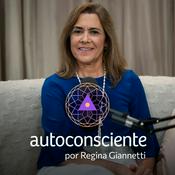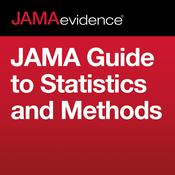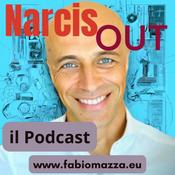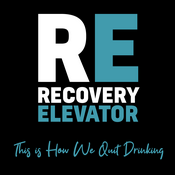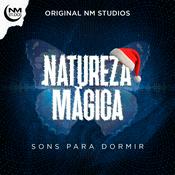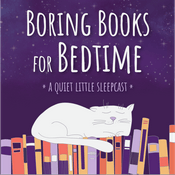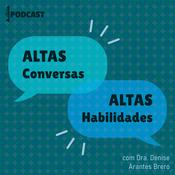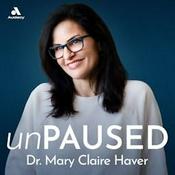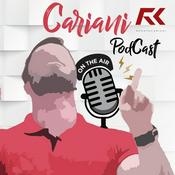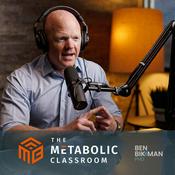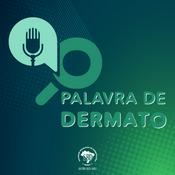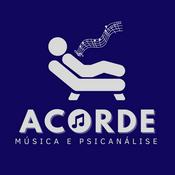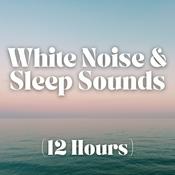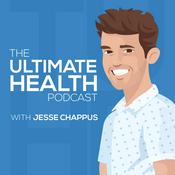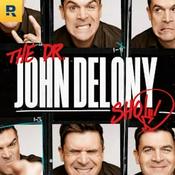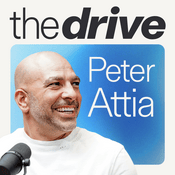OT Potential Podcast | Occupational Therapy CEUs
Sarah Lyon, OTR/L

Último episódio
183 episódios
- While the landscape of healthcare is shifting beneath our feet, the most tangible change in daily practice since the arrival of AI has been our documentation.
Over the past two years, we have moved beyond the initial excitement of AI scribes and chat interfaces. As we look ahead to Therapy Documentation in 2026, the conversation is shifting from “how do we save time?” to “how can data and analytics help us in real-time?” We are entering an era where documentation is no longer a static record of the past, but a dynamic tool that augments our clinical reasoning and patient care.
We are thrilled to welcome to the podcast Pedro Teixeira, MD, PhD. Dr. Teixeira is the co-founder of PredictionHealth (now part of Prompt Health) and a leading expert in using biomedical informatics to bring intelligent automation into the rehab workflow.
In this episode, we’ll discuss:
Industry-wide technology adoption
Documentation KPIs and metrics
Emerging clinical data dashboards
Future-focused patient care vision
See full course details here:
https://otpotential.com/ceu-podcast-courses/therapy-documentation-in-2026
See all OT CEU courses here:
https://otpotential.com/ceu-podcast-courses
Check our our live webinar schedule here:
https://otpotential.com/live-ot-ceu-webinars
Support the show by using the OTPOTENTIAL Medbridge Code:
https://otpotential.com/blog/promo-code-for-medbridge
Try 2 free OT Potential courses here:
https://otpotential.com/free-ot-ceus
Support the show - There is a foundational skillset essential to occupational therapy that often isn't covered in school: The ability to design a 60-minute session that is both clinically transformative and operationally sound.
Bridging the gap between high-level evidence-like task-specific practice for stroke recovery-and the realities of billing codes and patient engagement is no small feat. It is this specific ability to structure "best practice" into a seamless, hour-long experience that separates the master clinician from the novice.
In this 1 hour course, we sit down with Rachel Egan, OTR/L, CHT, COMT, a master clinician and rehab manager who understands this complexity firsthand. As an operational leader at NovaCare overseeing 13 clinics, Rachel balances the dual demands of high-quality patient care and administrative excellence.
You'll leave this course ready to plan great OT sessions of your own.
See full course details here:
https://otpotential.com/ceu-podcast-courses/how-to-plan-a-great-ot-session
See all OT CEU courses here:
https://otpotential.com/ceu-podcast-courses
Check our our live webinar schedule here:
https://otpotential.com/live-ot-ceu-webinars
Support the show by using the OTPOTENTIAL Medbridge Code:
https://otpotential.com/blog/promo-code-for-medbridge
Try 2 free OT Potential courses here:
https://otpotential.com/free-ot-ceus
Support the show - Occupational therapy in the NICU is one of the most specialized and sensitive practice areas in our profession. The transition from traditional clinical settings to the high-stakes, high-tech environment of neonatal care requires a fundamental shift in how we approach both assessment and intervention.
Whether you are an OT looking to move into the NICU or a pediatric therapist wanting to better understand the early medical history of the infants on your caseload, this course will walk you through essential neuroprotective strategies that optimize long-term outcomes.
You’ll leave more confident in navigating the complexities of neonatal care—from performing specialized assessments to implementing interventions that protect the developing brain. Joining us for this course is neonatal therapist and lactation consultant, Nicole Bazinet, MS, OTR/L, IBCLC, CNT, NTMTC who will share hard-earned advice from her years in this setting.
In this course, we will cover:
OT assessment
Common interventions
Partnering with parents
You will leave this course empowered to support our tiniest patients and their families during this critical window of development.
See full course details here:
https://otpotential.com/ceu-podcast-courses/how-to-plan-a-great-ot-session
See all OT CEU courses here:
https://otpotential.com/ceu-podcast-courses
Support the show by using the OTPOTENTIAL Medbridge Code:
https://otpotential.com/blog/promo-code-for-medbridge
Try 2 free OT Potential courses here:
https://otpotential.com/free-ot-ceus
Support the show - Are you fully using the critical window of opportunity after stroke to support neuro-recovery during your OT sessions—or are you unintentionally devoting valuable rehab time to compensation?
In today’s episode, we’re joined by Henry Hoffman to explore why prioritizing recovery—when possible—matters, and how occupational therapy professionals can more intentionally drive neuroplastic change after stroke.
Together, we break down core principles that support recovery-oriented practice, including:
Motor learning over compensation
High-repetition, task-specific practice
Sensory-rich feedback to shape movement
We also unpack emerging neuroscience from the past few years that supports this approach—and translate it into real-world practice. You’ll hear practical examples of what these principles can look like across education, assessment, and intervention, helping you reflect on how recovery-focused your current stroke practice truly is.
Whether you work in inpatient rehab, outpatient neuro, home health, or education, this episode will challenge and refine how you think about recovery, compensation, and the powerful role OT professionals play in post-stroke neuro-rehabilitation.
See full course details here:
https://otpotential.com/ceu-podcast-courses/neuro-recovery-after-stroke
See all OT CEU courses here:
https://otpotential.com/ceu-podcast-courses
Support the show by using the OTPOTENTIAL Medbridge Code:
https://otpotential.com/blog/promo-code-for-medbridge
Try 2 free OT Potential courses here:
https://otpotential.com/free-ot-ceus
Support the show - Mental health is one of occupational therapy’s smallest practice areas.
Because relatively few OTs work in traditional mental health settings, it can feel like an enigma:
What does mental health OT actually look like day to day?
Where do we fit on interdisciplinary teams?
And how does occupation truly show up in mental health care?
At the same time, there may be no better home for occupational therapy’s core values than mental health practice.
In this course, Intro to Mental Health OT, we zoom out to ground you in the big picture—while also getting practical about what mental health OT looks like in real clinical contexts.
We’ll be joined by a practicing occupational therapist and champion of the profession, Michelle Burlyga, OTR/L.
Together, we’ll walk through:
Common assessments used in mental health OT
Core treatment approaches and intervention strategies
Key considerations for mental health practice that differ from other OT settings
Why mental health competencies are increasingly essential—no matter where you practice
You’ll leave with a clearer mental model of mental health occupational therapy—and a stronger sense of how OT’s distinct focus on occupation can play a powerful role in supporting mental health and recovery.
See full course details here:
https://otpotential.com/ceu-podcast-courses/intro-to-mental-health-ot
See all OT CEU courses here:
https://otpotential.com/ceu-podcast-courses
Support the show by using the OTPOTENTIAL Medbridge Code:
https://otpotential.com/blog/promo-code-for-medbridge
Try 2 free OT Potential courses here:
https://otpotential.com/free-ot-ceus
Support the show
Mais podcasts de Saúde e fitness
Podcasts em tendência em Saúde e fitness
Sobre OT Potential Podcast | Occupational Therapy CEUs
Earn your OT CEUs by listening to our episodes for free, then logging into the OT Potential Club to take a short quiz and download your certificate. Each week (with breaks for major holidays), we host a live-recorded conversation exploring cutting-edge trends, timely hot topics, and the most impactful developments shaping occupational therapy today. Our expert guests help you pull out actionable insights you can apply immediately in practice. Designed for both occupational therapists, occupational therapy assistants, and OT students the OT Potential Podcast is your go-to source for AOTA-approved, evidence-driven occupational therapy continuing education.
Site de podcastOuça OT Potential Podcast | Occupational Therapy CEUs, Autoconsciente Podcast | Vida interior e muitos outros podcasts de todo o mundo com o aplicativo o radio.net

Obtenha o aplicativo gratuito radio.net
- Guardar rádios e podcasts favoritos
- Transmissão via Wi-Fi ou Bluetooth
- Carplay & Android Audo compatìvel
- E ainda mais funções
Obtenha o aplicativo gratuito radio.net
- Guardar rádios e podcasts favoritos
- Transmissão via Wi-Fi ou Bluetooth
- Carplay & Android Audo compatìvel
- E ainda mais funções


OT Potential Podcast | Occupational Therapy CEUs
Leia o código,
baixe o aplicativo,
ouça.
baixe o aplicativo,
ouça.

